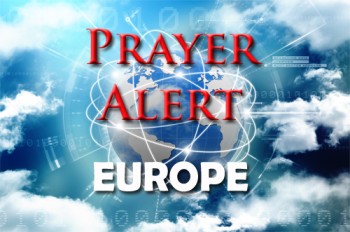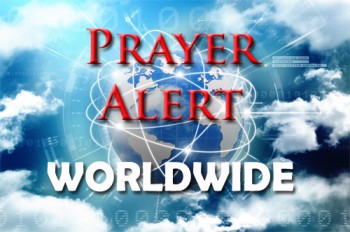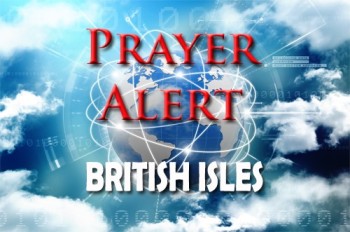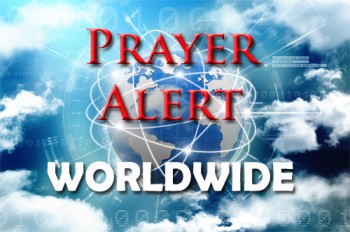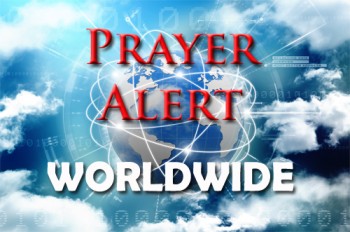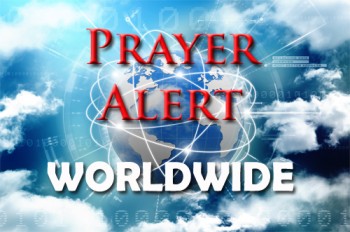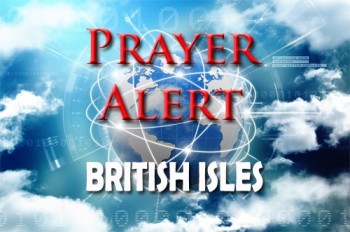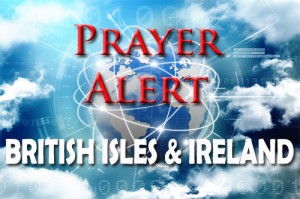Displaying items by tag: diplomacy
Türkiye: largest prisoner swap since 1985
Journalist Evan Gershkovich and US marine Paul Whelan have been released from Russian jails in the largest prisoner swap with the West since the Cold War. The exchange, the result of months of complex negotiations, also freed British-Russian dissident Vladimir Kara-Murza, who had been sentenced to 25 years for opposing Russia’s invasion of Ukraine. Others released include Radio Free Europe editor Alsu Kurmasheva, anti-war artist Aleksandra Skochilenko, dissident politician Ilya Yashin, two former staffers for Alexei Navalny, and Russian-German dual citizen Kevin Lik. The swap, conducted in Turkey, involved the US, Russia, Germany, and other nations, led by Joe Biden and his national security team. Biden, speaking from the White House with the families of the released, called it ‘a very good afternoon’ and praised the diplomacy involved. He acknowledged Germany, Poland, Slovenia, Norway, and Turkey for their roles in the negotiation and logistical support.
G20 deadlock
Finance ministers of the world's largest economies failed to agree on a closing statement after China refused to condemn Russia's invasion of Ukraine or accept parts of G20’s statement deploring Russia's aggression ‘in the strongest terms’. Moscow said ‘anti-Russian’ countries had ‘destabilised’ the G20 after China’s plan was viewed as pro-Russian. President Zelenskiy will meet China’s president to discuss China’s cease-fire proposal, saying a meeting would be ‘important for world security.’ China's 12-point ‘political settlement’ plan does not require Russia to leave Ukraine and was met with scepticism from Ukraine’s allies. Emmanuel Macron called on Beijing to ‘help us pressure Russia’ to end the war as peace was only possible if ‘Russian aggression stopped, troops withdraw and territorial sovereignty of Ukraine and its people is respected’. Joe Biden said, ‘China as a peacemaker in Ukraine is not rational. Putin's applauding it, so how could it be any good? I've seen nothing in the plan that would benefit anyone other than Russia, if China's plan were followed.’ See also
Ways the UK could shake Putin
For Global Britain to be credible it is time for its architect, Boris Johnson, to intervene with retribution tactics not deterrence. Closing Russia’s embassy and removing their diplomats while removing ours from Moscow would indicate a fundamental shift in the understanding of Russia as not a partner in diplomacy, but a threat to other nations. Russian state outlets in the UK, like Russia Today, spouting propaganda masquerading as journalism, should be shut down immediately to prevent misinformation. Those operating in politics, law, and media while representing Russian state interests should be forced to declare who is paying their bills. Visas should be cancelled and assets of everyone linked to Putin’s regime frozen. Of all the economic sanctions, cutting Putin’s regime off from SWIFT international payment system would remove Russia’s ability to make international transactions, trigger capital outflows and currency instability, and hit buyers of Russian oil and gas.
SAT7 briefing
January 2022 looks very different in contrasting corners of the Middle East and North Africa - from wealthy Gulf nations to countries in crisis like Afghanistan and Yemen. SAT7 analysts see hopeful signs of nations beating swords into ploughshares, but too few leaders are using their power, or lessening their grip on it, for the good of all. An important positive trend we will see continuing from 2021 is renewed diplomacy by key players and rivals in the region. The UAE reached out to Turkey with a $10 billion investment olive branch. Both countries are looking to de-escalate the tensions which have resulted, for example, from their military support for opposite sides in the Libyan conflict and their opposite policies towards the Muslim Brotherhood. Turkey has also sought to ease tensions with Egypt and began 2022 with a new rapprochement with Armenia. For the full briefing click the ‘More’ button.
Afghanistan: Taliban invite diplomats back
80% of Afghanistan's money comes from foreign donations or aid, and the Taliban cannot afford to be ostracised by the world. Their security commander appealed to diplomats, politicians and businesses: ‘Come. Start your work again. No one will hurt you. Diplomatic relations are the right of every country.’ But many are sceptical. Two newspaper journalists were tortured by the Taliban for covering women protesting for more freedom. The journalists were held in separate cells and whipped with cables. They both passed out from intense pain. There are huge weals and extensive bruising on their backs, shoulders, thighs and buttocks. Their editor-in-chief said, ‘These journalists were beaten and tortured for doing their job. We need the international community to stand with us and insist the Taliban are held to account because this will have a terrible impact on media freedom and everyone's freedoms.’
Iran: satellite images of nuclear site raise alarms
New satellite images show vehicles, a fresh access road and excavation at an Iranian nuclear site that was covered up in March. This raised alarms as the International Atomic Energy Agency (IAEA) met in Vienna. The IAEA seeks to promote the safe, secure and peaceful use of nuclear technologies. During a crucial board meeting, the US accused Iran of violating the very nuclear deal that US negotiators are trying to reinstate. ‘Since this board last met, Iran has also exceeded constraints by enriching uranium to 60% U-235,’ the delegation said. The head of the UN nuclear watchdog issued a similar warning. ‘My expectations about this process, of course, were not met,’ the IAEA director said. ‘We have a country that has a very developed and ambitious nuclear programme, which is enriching uranium at very high levels, very close to weapons-grade.’
Driving on wrong side of US air base road
A new video has emerged on social media of a car being driven on the wrong side of the road outside RAF Croughton, near where 19-year-old Harry Dunn died when a car driving on the wrong side of the road hit him. The suspected driver left the UK under diplomatic immunity. US secretary of state Mike Pompeo rejected the UK's request for the driver’s extradition. A joint statement released by the police and the base said that additional provisions are to be introduced, and both parties are doing all that they can to prevent any future harm on the roads in and around the site. Meanwhile Harry Dunn’s family said that the video is evidence that a further tragedy is inevitable. They believe that the police and the US air force are ‘failing to acknowledge that there is a problem’.
UK / Russia: international relations
Former Russian spy Sergei Skripal and his daughter Yulia linger critically ill in a UK hospital after being poisoned by nerve agents developed and produced in Russia. Mrs May said there was ‘no alternative conclusion’ than to believe Russia was ‘culpable’ for the poisonings. Russia called the allegations ‘insane’, while refusing to explain how Russian nerve agents had been used. Putin’s defiance prompted the expulsion of 23 Russian diplomats from the UK. America said Russia’s actions ‘fit a pattern of behaviour whereby Russia disregards international rules-based order, undermines sovereignty and security in countries worldwide, and attempts to subvert and discredit Western democratic institutions and processes.’ Because of a hostile political climate the UK intends to build a new ‘Defence Science and Technology Laboratory’ in Porton Down (where the nerve agent used on the Skripals was identified). The Russian foreign minister said that Russia would expel UK diplomats ‘soon’. Pray for ‘retribution and revenge’ tactics to end. See: and
